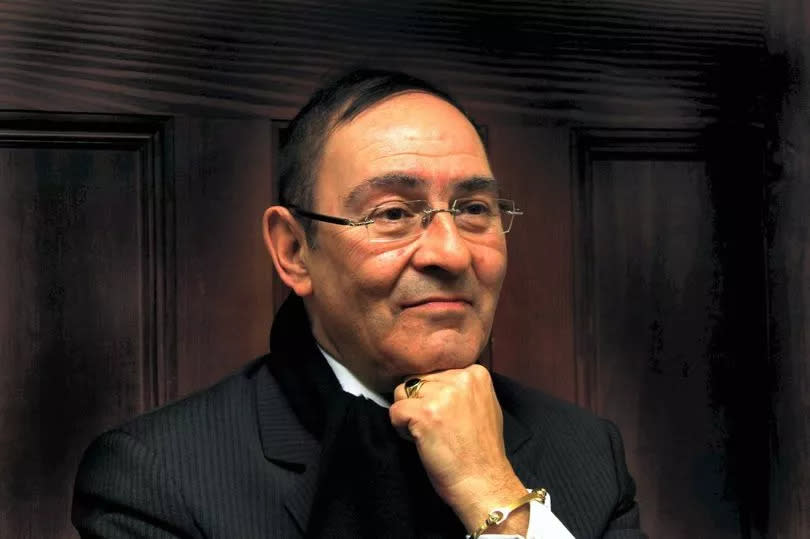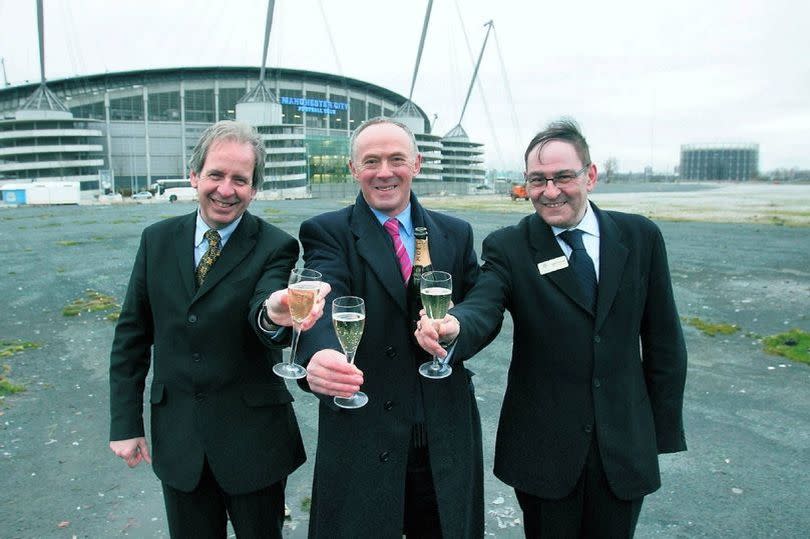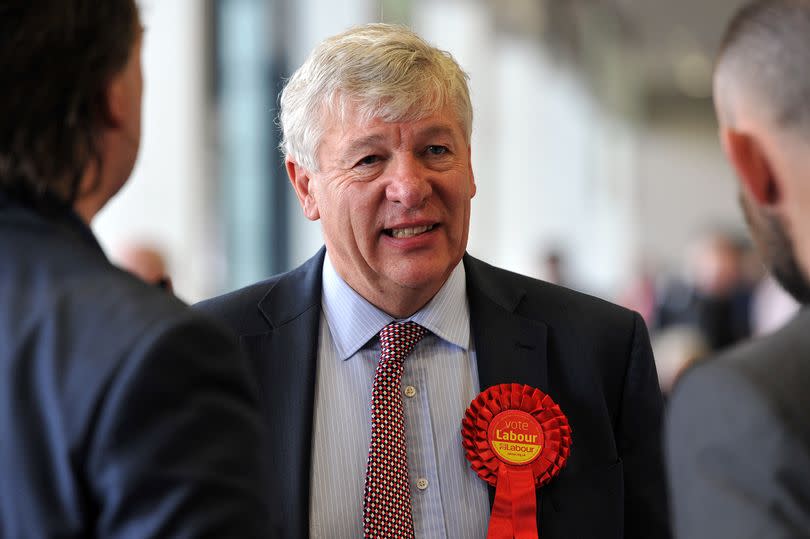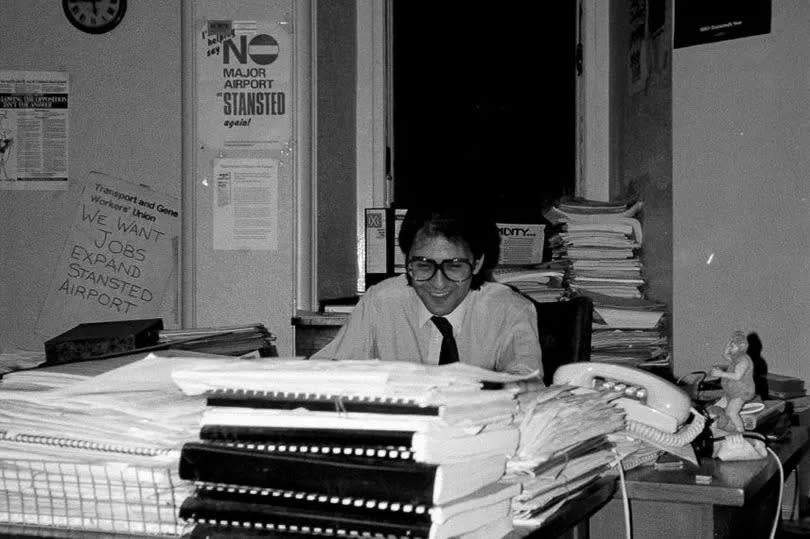'I am proud to have known him, to have worked with him and to have called him a friend'
Together they spearheaded the rebirth of Manchester, helping to drag the city out of its post-industrial slump. Here, Graham Stringer, Blackley and Broughton MP, pays tribute to his friend Sir Howard Bernstein, the former Chief Executive of Manchester City Council, following his death aged 71 last Saturday.
I first met Howard Bernstein 40 years ago when I became leader of Manchester City Council. It was not an obviously auspicious moment.
Howard was a relatively junior 31-year-old clerk. He was working on presenting evidence to the inquiry into the expansion of Stansted airport that resulted in the Eyre Report.
Manchester's case was that the huge public subsidy to Stansted Airport would damage Manchester Airport and was unfair competition. Howard was on top of the technical detail and was keen to impress on me the importance of lobbying Labour's Shadow Transport Secretary John Prescott, amongst others.
READ MORE:
He was enthusiastic and helpful, but I and I don't think anybody else could have foreseen how important Howard would become to the future development of Manchester. It was deeply ironic and a measure of his success and Manchester's that, 30 years later, he was instrumental in Manchester Airport's purchase of Stansted.
Howard, who was knighted in 2003, was born and brought up in Manchester, a city he lived in and served all his life until his death on June 22. He was a vital cog, possibly the most important cog in bringing much of the investment into Manchester that stopped it declining into a sad, post-industrial city with no future.
It is difficult to select, from all the projects Howard was involved with, any one as being the most significant. However, undoubtedly the most complicated and difficult was putting Manchester back together after the IRA bomb devastated the centre of the city on June 9, 1996.

It took three years of unremitting hard work, which Howard described as 'absolutely bloody hell'. First, he administered the creation of a taskforce with him as chief executive and a private sector chair and the public sector represented by central government and Manchester City Council.
The complexities of keeping small businesses solvent and large businesses engaged whilst redesigning the city centre, can only be imagined. The politics between central and local government and the local community were at least as challenging, not to mention that there was a change of government a year later.
After three years, a much improved city centre was thriving. This is impressive in its own right but there is a comparator to Manchester; Oklahoma, which two years before had suffered a similar devastating bomb attack.
With a huge federal aid package, it took Oklahoma more than 10 years to restore normality. The success of Manchester's Commonwealth Games in 2002, which did so much to improve Manchester's national and international image, owed a huge amount to Howard's meticulous attention to detail.

He walked all the routes that officials and athletes would have to use between venues, to ensure there were no unforeseen problems. One project that got away was the super-casino intended for the site of the Co-op Live arena, which would have brought thousands of jobs to Manchester.
An independent adjudication panel had been set up to decide between competing sites. It was thought that this was a device to give the super-casino to Blackpool (ministers at the time have since confirmed to me that this was their intention).
Howard refused to accept this. He was regularly on the phone asking me to write a letter or lobby some critical person, and the Sunday before Manchester's submission had to be presented on the Monday, Howard went into the town hall and rewrote the whole lengthy report.
That submission won the day. Unfortunately, although the Commons accepted the decision, the House of Lords did not and the then Prime Minister, Gordon Brown, lacked the appetite for a continued battle.

Howard showed resilience to move on to the next project when our victory was unjustly denied. Manchester was the first city in the United Kingdom to restore trams to our streets.
From beginning to end this has always been more difficult than observers might suspect. Initially, Howard had to help devise plans that would satisfy the Thatcher government that the trams were private sector and Labour councils that they were public sector.
This took a certain amount of administrative dexterity. To simplify, the scheme started off in the private sector and would be handed over to the public sector. Everybody was happy.

Civil servants are also not very keen on trams because of their upfront costs, although in the long term they are a bigger commitment to public transport and cheaper than the alternative, buses. When it came to the expansion of the tram system to Manchester Airport, Ashton, Oldham and Rochdale, the officials advised the Transport Secretary, Alistair Darling, against the project.
The advice was accepted. This required a different form of organisation.
Howard ensured that every private sector person from Greater Manchester who was invited to 10 Downing Street, would tell the Prime Minister, Tony Blair, that trams were vital for the economic future of this conurbation. The day was won and we have the expanded system.

Howard Bernstein joined Manchester City Council at the age of 18 as an office junior making coffee for middle ranking officials and doing tedious conveyancing work. Manchester would be a very different city if he had chosen a different career path - although possibly only working for his beloved Manchester City Football Club would have had as much attraction.
From teamaker to stellar chief executive has a ring of Hollywood about it. He retired in 2017, in my opinion, too soon, with still much to give.
I saw him at the end of April. Obviously very poorly, but still trying to organise meetings for me and others to continue to help Manchester become a better place.
I am proud to have known him, to have worked with him and to have called him a friend.

 Yahoo News
Yahoo News 
